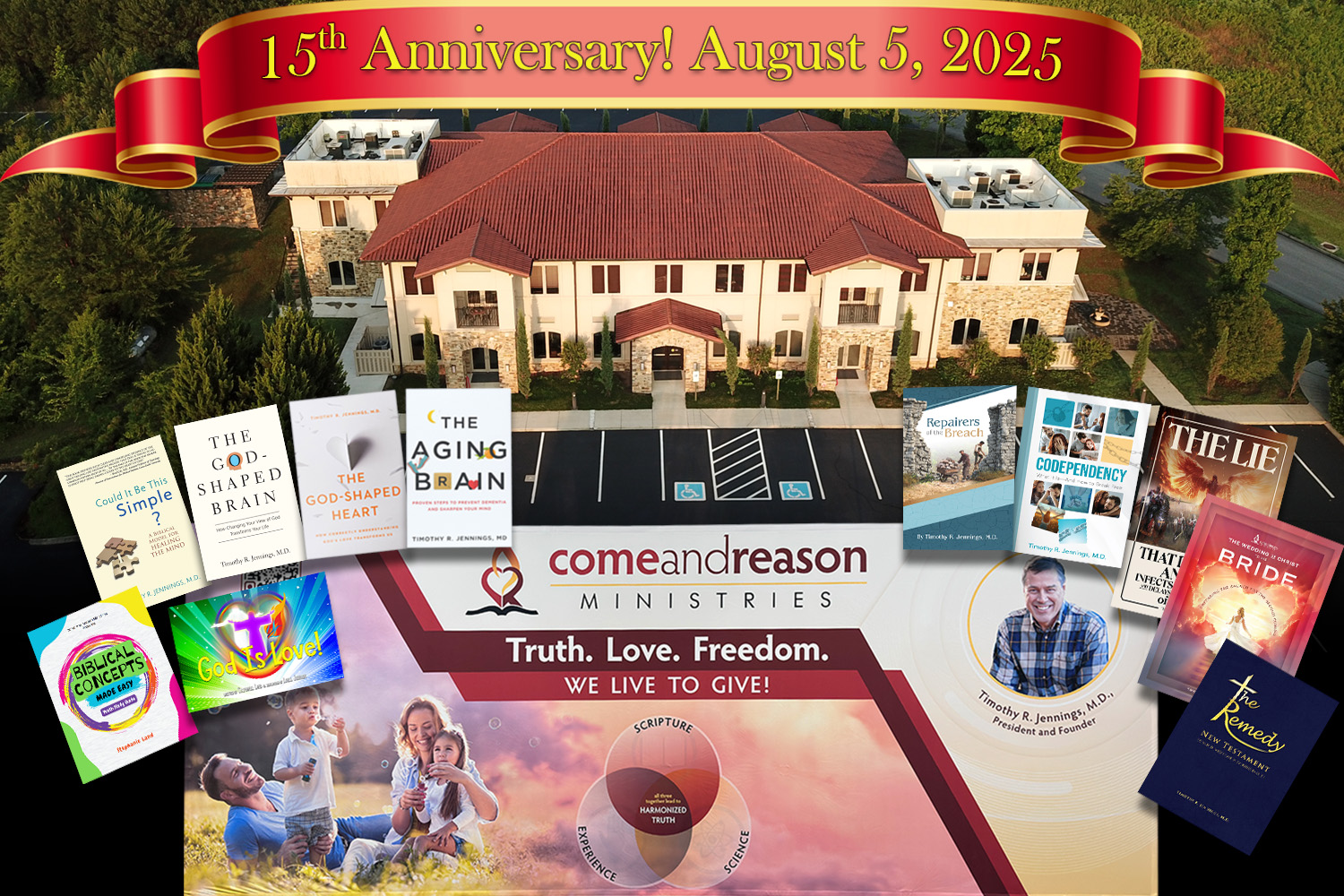When you hear the words “Merry Christmas,” do you think of Jesus, of family, or of presents? Or do you think of commercial exploitation or, perhaps, of pagan infestation of Christianity?
It seems that every holiday season, some Christian brother or sister objects to celebrating Christmas, raising concerns over its pagan origins. Invariably, some new convert becomes distressed when the history of December 25 gets presented.
Does the Bible offer us any wisdom regarding how we are to deal with pagan intrusions into our lives? It most certainly does.
Accept him whose faith is weak, without passing judgment on disputable matters. One man’s faith allows him to eat everything, but another man, whose faith is weak, eats only vegetables. The man who eats everything must not look down on him who does not, and the man who does not eat everything must not condemn the man who does, for God has accepted him. Who are you to judge someone else’s servant? To his own master he stands or falls. And he will stand, for the Lord is able to make him stand. One man considers one day more sacred than another; another man considers every day alike. Each one should be fully convinced in his own mind (Romans 14:1–5 NIV84).
In Paul’s day, much of the meat sold at market was from animals that had been slaughtered in pagan sacrificial services. Some early Christians began to spread the fear that eating such meat would be sin, would show loyalty to the pagan god, and would betray Jesus.
Paul knew better. He knew that an idol of stone, metal, or wood couldn’t change the nutritional quality of the meat and that a person buying meat needed to consider only its quality (e.g., whether it was rancid or not). But Paul also knew that those weak in faith, meaning the immature, could have their minds infected with fears, superstitions, and doubts—primarily coming from their immature brethren in the church—and that these fears, superstitions, and doubts would lead to false guilt, poisoning their faith relationship with Jesus. So Paul instructed that if your faith is weak (immature), and that if eating meat offered to an idol would cause you to feel guilt, doubt your faithfulness to Jesus, and believe that the idol now had some power over you, then most certainly do not eat such food. But if your faith is mature and you know that meat is food and that idols are powerless, then you can eat anything in the meat market without fear of your mind being infected with falsehood.
The apostle went on to explain that the same principle applies to different holidays and festivals. If observing a certain holiday makes you believe that somehow you are being disloyal to Jesus, then, by all means, don’t observe it. But, if observing the holiday draws you closer to Jesus and enhances your relationship with Him, then, by all means, observe it. Every person should be fully persuaded in their own mind.
The December 25 date is completely irrelevant—the relevance is what does the season mean to you? Is Jesus the reason for the season in your heart? Do you use this time to celebrate the incarnation of the Son of God? Do you reflect on the selflessness of Jesus and seek to emulate Him more fully? Do you recognize the humility of His birth and seek to live a meek and trusting life?
Or do you focus on the world, on more shopping, partying, and extravagance? Or do you focus upon the pagan origins of the December 25 date and seek to disrupt the joyful experience of others?
One of the founders of the Seventh-day Adventist Church had a balanced, rational approach to the celebration of Christmas. She warned of not allowing the values of the world to overtake us and reminded of the history of the day, but she also wrote:
The holiday season is fast approaching with its interchange of gifts, and old and young are intently studying what they can bestow upon their friends as a token of affectionate remembrance. It is pleasant to receive a gift, however small, from those we love. It is an assurance that we are not forgotten, and seems to bind us to them a little closer. …
It is right to bestow upon one another tokens of love and remembrance if we do not in this forget God, our best friend. We should make our gifts such as will prove a real benefit to the receiver. I would recommend such books as will be an aid in understanding the word of God or that will increase our love for its precepts. Provide something to be read during these long winter evenings (The Adventist Home, p. 478).
Later, she wrote this about the Christmas tree:
God would be well pleased if on Christmas each church would have a Christmas tree on which shall be hung offerings, great and small, for these houses of worship. Letters of inquiry have come to us asking, Shall we have a Christmas tree? Will it not be like the world? We answer, You can make it like the world if you have a disposition to do so, or you can make it as unlike the world as possible. There is no particular sin in selecting a fragrant evergreen and placing it in our churches, but the sin lies in the motive which prompts to action and the use which is made of the gifts placed upon the tree (Ibid., p.482).
So this Christmas, I encourage you to keep Jesus at the center of your holiday experience. Have a very merry CHRISTmas for Jesus is truly the reason for the season.









 using your credit or debit card (no PayPal account needed, unless you want to set up a monthly, recurring payment).
using your credit or debit card (no PayPal account needed, unless you want to set up a monthly, recurring payment). instead?
instead?